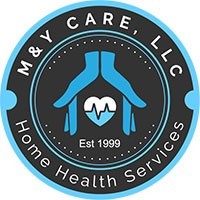More than half of all accountable care organizations (ACOs) deliver home health care to their patients, while an additional 17% have new home visit programs in the works.
That’s according to a recent survey of National Association of ACOs (NAACOS) members, conducted in conjunction with the Institute for Accountable Care (IAC) and West Health Institute. Washington, D.C.-based NAACOS is an industry advocacy group representing hundreds of ACOs, which cover an estimated 23 million patients who have Medicare, commercial insurance and Medicaid.
The survey findings should come as welcome news to home-based care providers, who have long tried — and largely failed — to build partnerships with ACOs. Home health providers have argued that they can help improve patient outcomes, but ACOs have often undervalued that ability.
The coronavirus is only likely to help prove home-based care’s worth, according to Rob Mechanic, senior fellow at the Heller School of Social Policy Management at Brandeis University and executive director of IAC, a Washington, D.C.-based research organization founded by NAACOS.
“Since COVID, … there are some [ACOs] that are frankly growing their [home-based care] programs, because they’re concerned that patients are not seeking treatment when they have serious problems,” Mechanic told Home Health Care News. “I think home-based care is tailor-made for ACOs.”
Despite Mechanic’s COVID-19 predictions, the aforementioned survey was conducted in a pre-coronavirus world. It ran from the end of September 2019 through the start of January 2020, polling ACOs on their home-based care practices.
A total of 163 ACOs were surveyed, with the large majority of respondents being participants in the Medicare Shared Savings Program. A few were Next Generation ACO program participants.
Of the respondents, 26% said they have a home visit program, while 25% conduct home visits but don’t have a formal program. Additionally, another 17% have a home-visit program in the works.
Only 32% of respondents said they had no plans to start a home-visit program.
The full results of the study have yet to be released because the findings have been submitted to a peer-reviewed journal. However, Mechanic said the results reflect the growing interest in home-based care delivery by ACO programs.
“It didn’t surprise me at all because, frankly, this is something that makes a lot of sense for ACOs,” he said. “ACOs ultimately are judged against a global budget, a total home health care budget. So ACOs can afford to invest in non-billable, non-revenue producing activities that will lower home health care spending.”
The main reason respondents reported having a home-visit program was to deliver primary care. Other popular reasons for having a home-visit program were to support care coordination efforts and transitions from in-patient settings to the home.
A smaller percentage of respondents said they have a home-visit program to better address social determinants of health. Some also said their home-visit programs were part of a hospital-at-home model.
While a growing number of ACOs seem to be coming around on home-based care, that doesn’t automatically equate to shared savings for home health care agencies.
There’s a lot of diversity in how programs are delivering home-based care, Mechanic said, but generally even when in-home health care companies have been involved with ACOs, they’re still left out of shared savings ACOs generate. Instead, the arrangements are usually fee-for-service.
Mechanic is hopeful those relationships will evolve in the future.
“I would like to see, over time, more [ACO] partnerships with different kinds of groups,” he said. “Both ACOs and home health care agencies have to come to the table with open minds and to be flexible and creative. I think that can lead to partnerships that are good for both of them.”
By Bailey Bryant
Source: Home Health Care News

